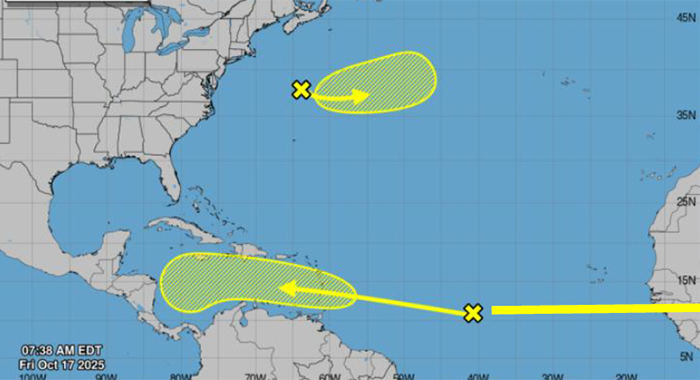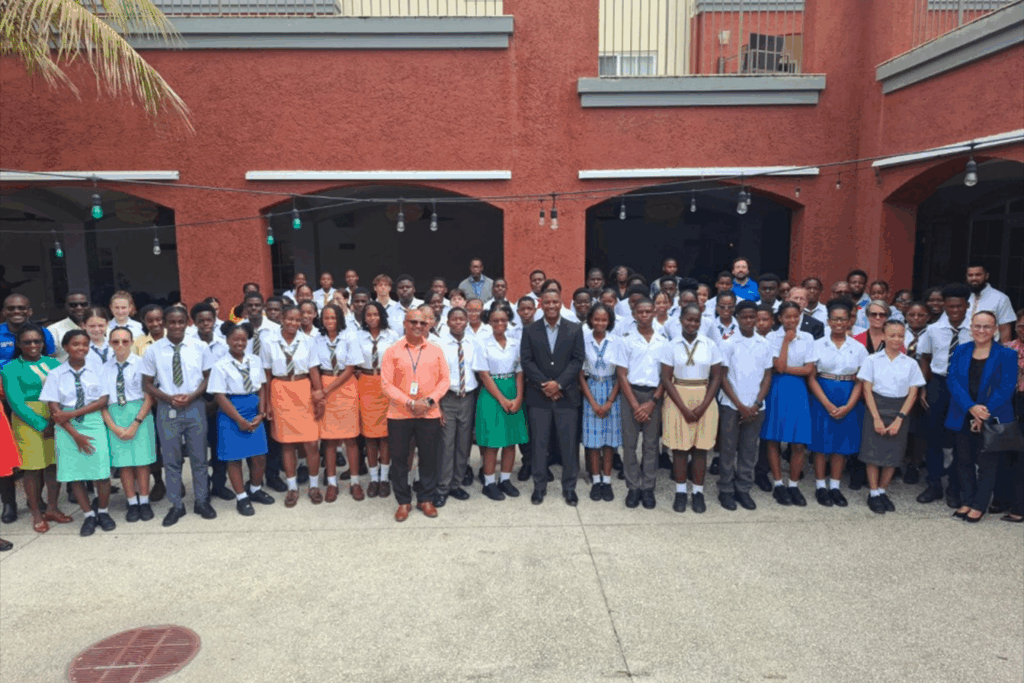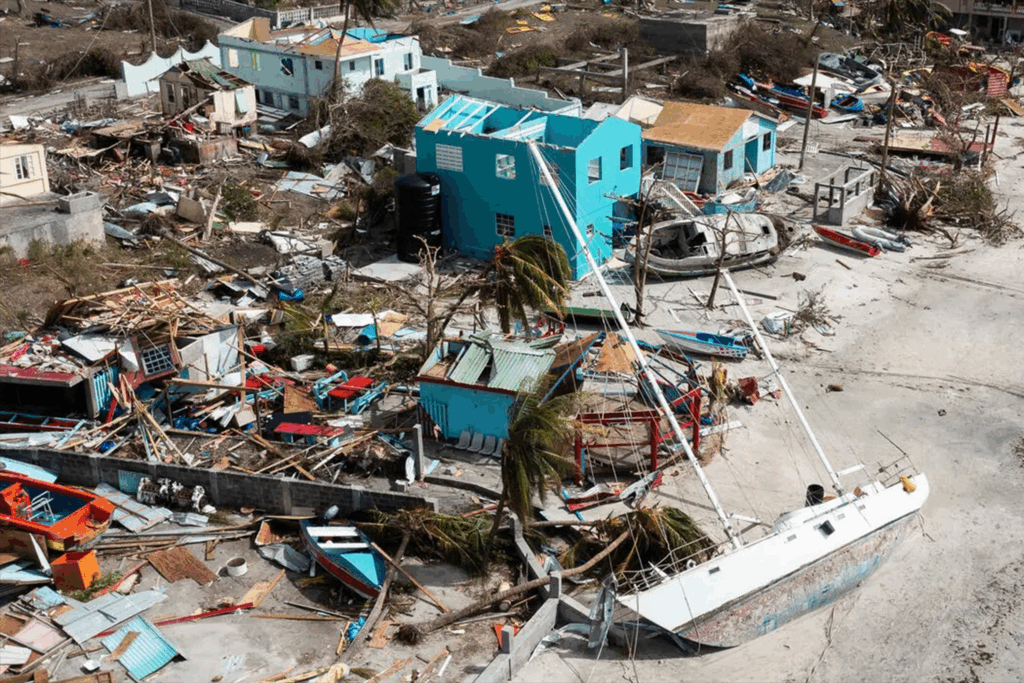The St. Vincent and the Grenadines Meteorological Services announced on Friday that they are closely monitoring a tropical wave currently positioned near 40 degrees west, approximately 1,000 miles east of the Windward Islands. The wave is accompanied by a significant area of showers and thunderstorms. According to the National Hurricane Centre (NHC), there is a low probability of tropical cyclone formation, with a 10% chance within the next 48 hours and a 30% chance over the next seven days. Despite the uncertainty regarding its development, the system is expected to bring cloudy skies, moderate to heavy showers, and thunderstorms to St. Vincent and the Grenadines from late Sunday into Monday. Weather models predict rainfall accumulations of 50–75 mm (2–3 inches), with higher amounts likely in mountainous regions. Additionally, strong surface winds are anticipated, which could agitate coastal waters. The bulletin warned that flash flood watches or warnings may be issued as the wave approaches, urging residents to stay informed about its progress.
博客
-

Hilaire, UWP react to CCJ ruling in customs case
The Caribbean Court of Justice (CCJ) has delivered a landmark ruling, dismissing Opposition Leader Allen Chastanet’s appeal in a protracted customs case tied to the importation of a Land Rover Discovery vehicle. The decision, issued on October 15, 2025, upheld prior judgments from the High Court and the Court of Appeal, affirming that the Comptroller of Customs acted lawfully in withdrawing the charges. The CCJ further stated that seeking judicial review of the Comptroller’s decision was “legally misconceived.” Deputy Prime Minister Dr. Ernest Hilaire hailed the verdict as a personal vindication after nearly a decade of legal and political scrutiny. In a social media post, Hilaire emphasized his resilience, vowing to continue serving his constituents despite ongoing challenges. The United Workers Party (UWP), however, criticized the ruling, labeling it a blow to accountability and transparency in Saint Lucia. The party argued that the decision prevented a full examination of the facts, leaving the public in the dark. The CCJ’s ruling marks the definitive conclusion of the case, with no further appeals possible, and the court lamented the case’s excessive consumption of judicial resources.
-

LIVE NOW: Opening of NDFD Creole in the Streets 2025
In the ever-evolving landscape of social media, the ways in which users share content have undergone significant transformations. From the early days of simple tweets to the more visually-driven pins, the methods of sharing have become increasingly diverse and sophisticated. Initially, Twitter revolutionized the way people communicated online with its 140-character limit, encouraging concise and rapid information dissemination. As social media platforms expanded, Facebook introduced the ‘Share’ button, allowing users to easily repost content across their networks. More recently, Pinterest emerged with its unique ‘Pin’ feature, enabling users to curate and share visual content in a more organized and aesthetically pleasing manner. These developments reflect the growing demand for varied and user-friendly sharing options, catering to different preferences and needs. The evolution of sharing mechanisms not only enhances user experience but also influences how information spreads across the digital sphere, shaping online interactions and content consumption.
-

LIVE: Opening Ceremony of Creole in the Streets 2025
In today’s hyper-connected world, social media platforms have become the cornerstone of digital interaction, with sharing functionalities like ‘Share’, ‘Tweet’, and ‘Pin’ playing pivotal roles in content dissemination. These tools empower users to amplify their voices, spread information rapidly, and engage with global audiences in real-time. The act of sharing not only enhances personal expression but also drives collective movements, influences public opinion, and shapes cultural trends. As social media continues to evolve, its impact on communication, marketing, and societal dynamics grows exponentially. Understanding the mechanics and implications of these sharing features is crucial for navigating the digital landscape effectively.






